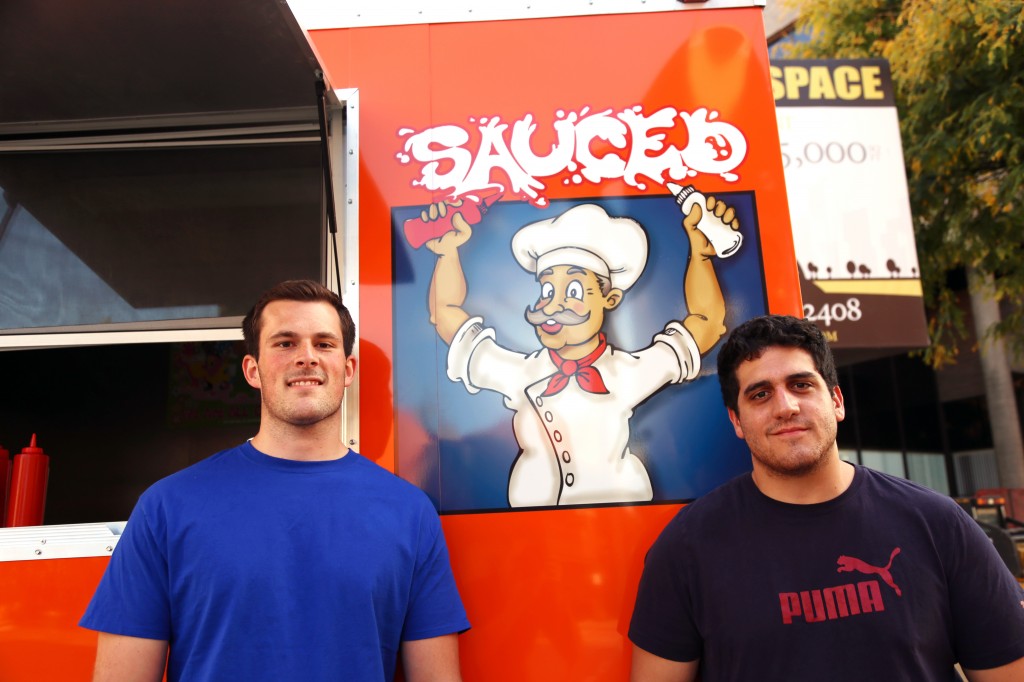
As the demand for food on-the-go grows Downtown, Binghamton is contemplating a one-year pilot program for mobile vendors.
Kyle Seeley, executive assistant to Mayor Matthew Ryan, said several city departments have recently been contacted by individuals looking to operate food trucks in Binghamton, and the City itself has sent out a survey to gauge interest in the possibility of more food trucks.
Currently, food trucks and food cart vendors are allowed on public property, but they are required to move at least 500 feet every 10 minutes.
“Really only ice cream trucks can operate like this,” Seeley said. “It is not feasible for a food truck selling hot food to move every 10 minutes.”
As of now, there are six food cart vendors located throughout the city of Binghamton, and several more are scheduled to open in the near future.
Chaz Hill, a cashier for the new Café 93.3 located on the corner of Washington Street and Court Street, said that he thinks the influx of food cart vendors in Binghamton is good for the economy and community.
“Binghamton’s a growing community,” Hill said. “[Food trucks] are things that are needed in Binghamton because the campus is expanding — SUNY as well as BCC — and you got to cater to their tastes. Not everybody wants a falafel.”
Café 93.3 is an extension of the radio station WJOB 93.3FM and features southern-style barbecue.
“We’re trying to extend into the community,” Hill said. “For a while, there’s been something missing in this town — for the minorities — so we’re just trying to fill that.”
Recently, in an interview with the Press & Sun-Bulletin, David Whalen, the owner of Binghamton Hots located on Washington Street, expressed his concerns of the negative effects that the food trucks may have on businesses like his own.
“There are people who have invested a lot of private money, restored old buildings and given a facelift to Downtown,” Whalen said. “And to saturate the market Downtown any further would actually take away from the progress we’ve made.”
Chad Solfaro, an investor for a forthcoming food truck called Mad Man Sammies, disagrees with Whalen and said the Downtown region can benefit from more food trucks.
“I think that [food trucks are] what a lot of up-and-coming areas want to see,” Solfaro said. “Especially with good university areas, the kids want to feel like they’re in a small-town Manhattan.”
Tobias Marmon, the owner of Mad Man Sammies, also said the increase of food trucks in Binghamton will positively affect the region.
“It’ll create a really cool, urban vibe that we don’t really have at Binghamton at the moment,” Marmon said.
Hill shares Solfaro’s and Marmon’s sentiments and believes that food carts are necessary to promote diversity.
“Everybody should open up to cater for the diversity that’s coming into Binghamton,” Hill said. “If anyone’s got a problem with that, then they should look back and reassess their situation because there’s enough room for everybody out here.”
Hill hopes that the new food carts and trucks will create a more welcoming environment Downtown for students who are not from the Binghamton area.
“Every year, you get more and more students from different parts of the world here and they want something that reminds them of home sometimes,” Hill said.
David Pfuhler, a junior majoring in environmental studies, hopes to see more food carts and trucks in Binghamton because they remind him of his home in Staten Island.
“Food trucks are good for Binghamton because they promote more people to be outside and get together over one thing that everyone loves: food,” Pfuhler said.


